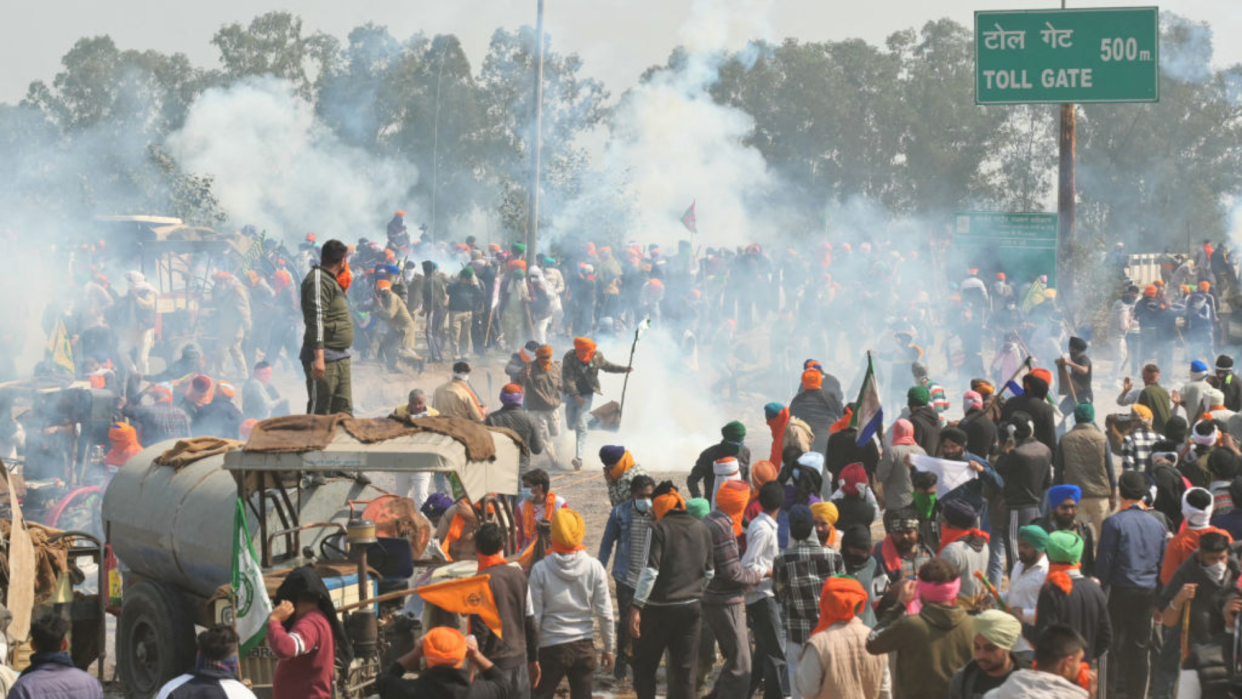Why India's farmers are protesting again

- Oops!Something went wrong.Please try again later.
Thousands of farmers are taking their tractors to India's streets to demand government action over crop prices and regulations.
The "Delhi Chalo", or "Let's go to Delhi" march, said Reuters, has "brought back memories of the chaos" of 2020-21, when millions of farmers united to protest against the introduction of three agriculture laws.
The year-long uprising posed one of Prime Minister Narendra Modi's "biggest challenges", said the BBC. And with the country now just weeks away from a general election, his government won't want to lose the support of farmers, who are the "most influential voting bloc in India".
What do India's farmers want?
The "headline demand" of the farmers' 12-point agenda is that a minimum support price (MSP) must be legally guaranteed, said The Indian Express. The MSP provides a "safety net" for farming communities, said Al Jazeera, by setting the price at which the government buys crops. But while the MSP provides an "assured" income amid "market uncertainties", farmers want it increased to at least 50% higher than the cost of producing the crops.
Organisers are also calling for farm loans to be waived; for policies that allegedly "hurt" farmers to be overturned; and for farmers to receive pensions. They also want India to withdraw from the World Trade Organization (WTO) and for all free trade agreements to be frozen.
The movement's leaders claim members of more than 200 unions are now participating in the protest march, "under the banner" of the Kisan Mazdoor Morcha (KMM), said The Indian Express. Talks between the unions and the government have so far been "inconclusive", said Sky News.
What happened in 2020-21?
The introduction of three "controversial" agricultural reforms in 2020 sparked a "massive" protest, said the BBC. The proposed laws "loosened" rules around the sale, price and storage of farm produce, which had "protected farmers from the free market for decades".
The demonstrations "descended into violence several times", said Sky News. Farmers "hunkered down, encircling the capital and blocking key highways" before Modi repealed the laws in November 2021. "Dozens" died during the protests.
The farmers are now calling for promises made by the government back then to be delivered. These include providing compensation for the families of farmers who died during the protests and the formation of a committee focused on providing price guarantees.
How has the government responded?
Delhi has been "converted into a fortress", said Al Jazeera. Some of the city's entry points have been blocked with "barriers of barbed wire, spikes and cement blocks".
Drones dropped tear gas on thousands of farmers along the border between Punjab and Haryana earlier this week, and police and paramilitary officers are "stationed all along the highways" to block "tractor convoys" from getting to the capital, said Sky News.
With India's general election due to take place between April and May, and farmers comprising around two-thirds of the country's population, the government "will be keen to contain" the disruption and "not repeat past mistakes".
Yet farmers have described talks with Modi's government so far as "delaying tactics", said the BBC. Setting the stage for another long-running protest, the movement's leaders say they have the resources to camp out for at least six months if necessary.

